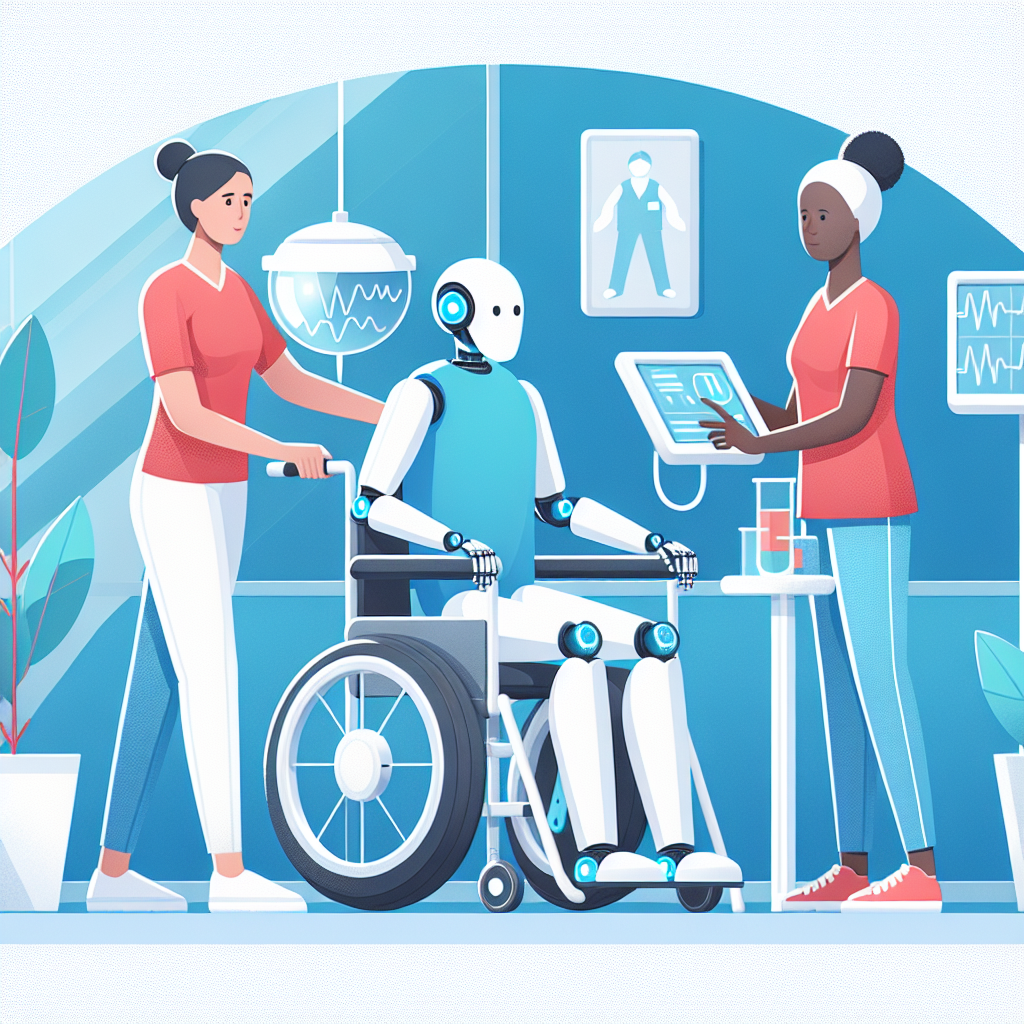Artificial Intelligence (AI) has been making waves in various industries, from healthcare to finance, and its potential in revolutionizing geriatric care is becoming increasingly evident. With the aging population on the rise globally, the need for innovative solutions to improve the quality of care for seniors is becoming more urgent. AI has the potential to address many of the challenges faced in geriatric care, from managing chronic conditions to promoting healthy aging and independent living.
One of the key benefits of AI in geriatric care is its ability to personalize care plans for each individual. By analyzing data from electronic health records, wearables, and other sources, AI can identify patterns and trends that can help healthcare providers tailor treatment plans to meet the specific needs of each patient. This can lead to more effective interventions and better outcomes for seniors, helping them to live healthier and more independent lives.
AI can also help in early detection and prevention of health issues in seniors. By analyzing data from various sources, AI algorithms can identify risk factors for conditions such as heart disease, diabetes, and cognitive decline, allowing healthcare providers to intervene early and prevent these conditions from worsening. This can lead to significant cost savings for healthcare systems and improve the quality of life for seniors.
In addition, AI can assist in medication management for seniors, who often have complex medication regimens that can be difficult to manage. By using AI-powered tools, healthcare providers can ensure that seniors are taking their medications correctly and on time, reducing the risk of medication errors and adverse drug reactions. This can help to improve medication adherence and overall health outcomes for seniors.
AI can also help in monitoring seniors’ health in real-time, allowing healthcare providers to intervene quickly in case of emergencies. Wearable devices equipped with AI algorithms can track vital signs, activity levels, and other health metrics, alerting healthcare providers to any abnormalities or changes that may require immediate attention. This can help seniors to remain independent and safe in their own homes while providing peace of mind to their loved ones.
Furthermore, AI can assist in addressing the social isolation and loneliness that many seniors experience, especially those living in long-term care facilities or communities. Chatbots and virtual assistants powered by AI can provide companionship and support to seniors, engaging them in conversation, reminding them of appointments, and even playing games with them. This can help to reduce feelings of loneliness and improve mental well-being in seniors, promoting a better quality of life.
Despite the numerous benefits of AI in geriatric care, there are also challenges and concerns that need to be addressed. One of the main concerns is the potential for bias in AI algorithms, which can lead to disparities in care for certain groups of seniors. It is important for healthcare providers to ensure that AI algorithms are trained on diverse and representative data to avoid bias and ensure fair and equitable care for all seniors.
Another challenge is the issue of data privacy and security, especially when it comes to sensitive health information of seniors. Healthcare providers must ensure that proper safeguards are in place to protect the privacy and confidentiality of seniors’ health data when using AI-powered tools and technologies. Compliance with regulations such as the Health Insurance Portability and Accountability Act (HIPAA) is essential to maintain trust and confidence in AI-driven geriatric care.
In conclusion, AI has the potential to transform geriatric care and improve the quality of life for seniors in countless ways. From personalized care plans to early detection of health issues, medication management, and social engagement, AI can help seniors to live healthier, more independent, and fulfilling lives. However, it is essential for healthcare providers to address challenges such as bias in algorithms and data privacy to ensure that AI is used ethically and responsibly in geriatric care.
FAQs:
Q: How can AI help in personalized care for seniors?
A: AI can analyze data from various sources to identify patterns and trends that can help healthcare providers tailor treatment plans to meet the specific needs of each senior, leading to more effective interventions and better outcomes.
Q: Can AI help in early detection of health issues in seniors?
A: Yes, AI algorithms can analyze data to identify risk factors for conditions such as heart disease, diabetes, and cognitive decline, allowing healthcare providers to intervene early and prevent these conditions from worsening.
Q: How can AI assist in medication management for seniors?
A: AI-powered tools can help healthcare providers ensure that seniors are taking their medications correctly and on time, reducing the risk of medication errors and adverse drug reactions.
Q: How can AI help in monitoring seniors’ health in real-time?
A: Wearable devices equipped with AI algorithms can track vital signs, activity levels, and other health metrics, alerting healthcare providers to any abnormalities or changes that may require immediate attention.

